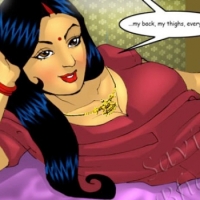The Indian Parliament enacted the Armed Forces (Special Powers) Act in 1958 as an interim measure with the hope of suppressing the Naga Nationalist Struggle, the only such movement in the North East at that time. It was gradually extended to other North Eastern States and then in 1990 to Jammu and Kashmir.
The Armed Forces (Special Powers) Act is to-date the single most direct instrument violating the democratic rights of the people of the North East and of Jammu and Kashmir. The Act is implemented when an area is declared ‘disturbed’ by either the Central or the State Government.
The Act is under much debate today on several grounds, not only in Jammu and Kashmir and the North East, but also in the rest of India. One, it enables the security forces to “fire upon or otherwise use force even to the causing of death”. Two, according to Section 6, no criminal prosecution can be initiated against the security personnel who take action under this Act. Three, till now, but for a few exceptional cases of public fury or when the security forces were caught in the act by the public, no paramilitary officer or soldier has been prosecuted for destruction of property or murder or rape. Finally, five official commissions and committees have recommended either repeal or drastic review of the Act.
We the participants of these two seminars and other individuals consider this and other such acts a gross abuse of the Constitution. AFSPA has led to atrocities in the North East and Kashmir. Currently, a case concerning 1,528 deaths in alleged fake-encounters in Manipur alone is before the Supreme Court. Over and above these, one can mention the Thangjam Manorama Devi case in Manipur in July 2004. She was arrested by the security forces and was allegedly raped and killed. Amongst other cases is the attempted molestation near Kokrajhar in Assam, on 23rd December, 2005, of some university students who entered by mistake a compartment carrying Haryana Armed Police personnel. Four students died when the police opened fire on other students who blocked the train after hearing the screams of the students. No action has been taken till today against the perpetrators of these and other crimes. Also many other cases of massacres, mass rapes and torture like the destruction of Oinam village in Manipur in 1987, the killing of some innocent persons in the Pathribal case, the Sophian sexual violence case and the discovery of mass graves in different places in Jammu and Kashmir raise similar concerns.
Many commissions and committees, such as the Justice Jeevan Reddy Committee (2005), the Second Administrative Reforms Commission (2007), the Prime Minister’s Working Group on Confidence Building Measures in Jammu and Kashmir (2007) headed by Shri Hamid Ansari, the Interlocutors’ Report on Jammu and Kashmir (2012) and Justice J S Verma Committee (2013) have recommended that the Act be repealed or amended. Even the Planning Commission in the 12th Five-year Plan document passed by the National Development Council has for the first time ever asked for not only a gendered review of the Act, but also of gendered violence in the ‘Disturbed Areas’, as women and children are the most vulnerable in conflict regions. These voices should be heard because AFSPA is symptomatic of a larger militarization. The negative impacts on human development such as health and education have been extensive so also the scars left by these acts and the negative effects on the psyche of people who live in a situation of low intensity warfare and are treated as unequal citizens
At the international level, India has been repeatedly flagged on the issue of AFSPA in the Human Rights bodies of the UN, including the Universal Periodic Review of the Council, in almost all the major human rights treaty bodies and Special Procedures. It is clear that the Act has not served its purpose. But the Government of India has not even amended the Act for more than 50 years. A reason given by Finance Minister P. Chidambaram in a speech in New Delhi on February 6, 2013 is that there is no consensus because both the retired and present army generals oppose even the idea of making it more humane.
Why does the army oppose the repeal or even amendment of this inhuman Act? Is it because they want to protect their personnel who abuse power? Surely, as the Verma Committee (2013) has remarked, the armed forces cannot expect impunity for actions such as rape, which are not in the line of duty. Can a democratic country tolerate such an anti-democratic Act? The situation in Jammu & Kashmir and the North East is complex and can be resolved only through a political process and dialogue. Those decisions cannot be taken by the army. The elected representatives have to take decisions that should include Confidence Building Measures (CBM). That is impossible when such abuses under a draconian Act continue. The rights of the people must be protected by judicial and official / administrative processes such as grievance cells that protect the right to information of relatives of detainees.
The security situation in most areas where the Act is in place has improved enormously in the last decade because of ongoing peace processes and civil society initiatives. So the stated purpose of the Act no longer exists. The security forces cannot presume that they have an unfettered right to continue using the Act in perpetuity. There has to be sunset date in these legislative measures. Continuing such Acts indefinitely would be undemocratic and violative of human rights. As a result of such violations a trust deficit has developed between the people of the North East and Jammu and Kashmir on the one hand and the rest of India on the other.
In addition, major state legislative measures exist in Jammu and Kashmir and Nagaland such as the Jammu and Kashmir Public Security Act and the Nagaland Security Regulations Act which are no less arbitrary. They provide the police with impunity. Such laws no longer have a place in our democratic polity, especially after the extensive peace processes in these states. We, therefore, call on States like Jammu and Kashmir and Nagaland that have been demanding the repeal of AFSPA to take a lead in changing the undemocratic tenor of the legal regime. We call upon all political parties and political candidates, including the major regional parties, to take a position on the repeal of AFSPA in the run-up to the general elections.
It is critical that a civil society alliance takes up a robust programme of advocacy and dissemination especially through the media. As a step towards it, we the 90 participants of the Seminar on AFSPA held at Indian Social Institute, New Delhi on 6th April 2013, and sponsored by ICSSR (NCR) and 160 persons present of the seminar held at Indian Social Institute, Bangalore on 13th April, 2013 demand the immediate repeal of AFSPA. We also demand that, that the armed forces be brought under the purview of the civilian government with no impunity.
Dr Joseph Xavier Dr George Mutholil
Executive Director Director
Indian Social Institute, New Delhi Indian Social Institute, Bangalore
With Partner organisations and individuals
Human Rights Alert, Imphal, Centre for Policy Analysis, New Delhi, North Eastern Social Research Centre, Guwahati, Altternative Law Forum, Bangalore, Mithra Foundation, Bangalore, NAPM, PUCL Karnataka, National Council of Churches in India, Nagpur, SCM, Bangalore, St Joseph’s College, Bangalore, Openspace, Bangalore, Vistaar, Bangalore, The Other Media, New Delhi, NAPM-Karnataka, Women’s Department, UTC, Bangalore.
Individuals
Ms Patricia Mukhim, Shillong, Mr Bashir Manzar, Srinagar, Ms Nandita Haksar, Goa, Mr Sanjoy Hazarika, New Delhi, Prof. Anuradha Chenoy, New Delhi, Prof. Ritu Dewan, Mumbai, Kamayani Bali Mahabal, Mumbai.
Related articles
- Indian Army Magic Formula to have beautiful and successful daughters ? #WTFad #AFSPA #Kashmir #Manipur (kractivist.wordpress.com)
- The Struggle For Justice In Manipur #AFSPA (kractivist.wordpress.com)
- UNHCR rapporteur calls for repeal of AFSPA in India (kractivist.wordpress.com)
- #India- Criminalising People’s Protests #Iromsharmila #AFSPA #Vaw (kractivist.wordpress.com)
















